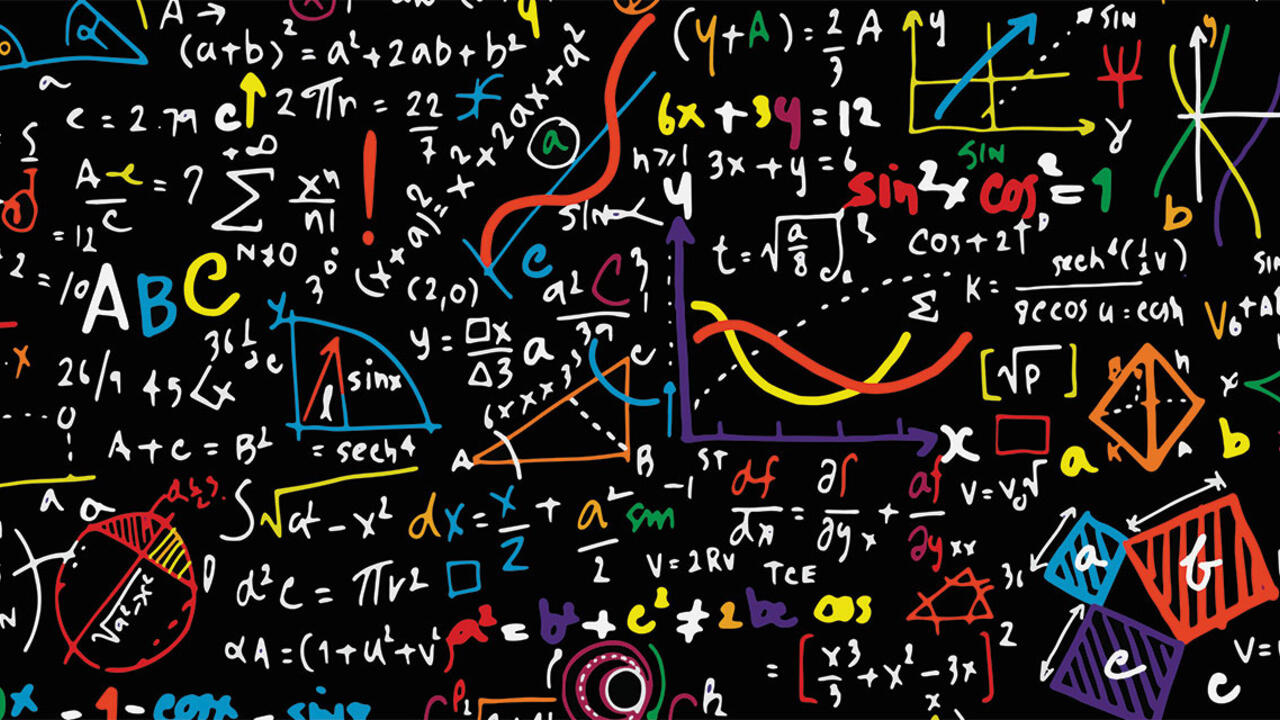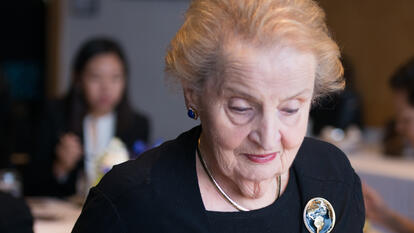Wellesley Math Professor Conceives Formulas for Health, Wealth, and Love

Have you been looking for love in all the wrong places? In his new book, The Calculus of Happiness: How a Mathematical Approach to Life Adds Up to Health, Wealth and Love, Oscar Fernandez, associate professor of mathematics at Wellesley, presents a math-based method to finding a suitable life mate. And, as WCAI Radio’s science editor Heather Goldstone learned, he has developed formulas to help people create wealth and improve their health as well.
During an interview on Goldstone’s show Living Lab Radio, Fernandez said that his equation for finding a suitable romantic partner is based on astronomer Frank Drake’s equation for estimating the number of intelligent civilizations in our galaxy. Fernandez said this alien-searching equation can also be modified to estimate the number of possible compatible partners that live near you. (That, Fernandez said, sort of equates finding a good date with finding an intelligent alien.) He also discussed how to use math to make optimal joint decisions in a relationship that are unbiased and perceived as fair by both parties.
Goldstone asked Fernandez to clarify the importance of quantifying improvements in aspects of life such as health and financial status. He explained, "In quantifying these aspects of life, one is led to equations. Once you have an equation, you have certain variables. You can then ask 'What happens if I change this specific variable? What happens to the outcome?' So, if you understand the relationship between the variables, you can profit from it, and that's very empowering."
Another example from Fernandez’s book involves estimating how many more years a person will need to work before retiring. Among the formula’s many insights, Fernandez said, is that in the simplest case this “magic number” depends entirely upon the ratio of yearly savings to yearly spending. The formula then estimates how changing that ratio affects the amount of time until retirement.
Fernandez acknowledged during the WCAI interview that empowering people, through math, to improve their health, finances and relationships was only half the reason he wrote the book. The other motivating factor, he said, was to address the “math crisis” in the United States, and show general audiences that math can be useful, personally relevant, and even fun.
In his book, he said, he translates the complicated, sometimes dizzying language of mathematics into a subject with everyday relevance. He aims to write and talk in an engaging style that makes mathematics accessible, not something to be feared.
“This is a critical approach to teaching mathematics since it can attract more students with majors in science, technology, engineering, or mathematics (STEM) fields where classes depend heavily on courses like calculus,” Fernandez said.
Fernandez also explained how his books express this teaching philosophy. He said, everyday life is packed with math principles of one kind or another. “Infusing mathematics courses with real-world, hands-on applications of math captures students’ interest. In this way, you teach them to apply their book knowledge in a useful and perhaps personally relevant way. “And what could be more real-world than health, finances and relationships?”
A son of Cuban immigrants, Fernandez is a first-generation college graduate. His father drove a taxi to support the family, and his mother was a nursing assistant. He knows the odds of a person like him earning tenure as a professor of mathematics. “Statistically speaking, I should not be here,” he said.
Fernandez wants to change that by increasing the number of Wellesley and all students, particularly from underrepresented groups, studying math. He teamed with another mathematics faculty member, Mildred Lane Kemper Professor of Mathematics, Stanley Chang, in 2011, to broaden participation in mathematics by creating the Wellesley Emerging Scholars Initiative. The program received 3-year funding from Mathematical Association of America, and has recently received generous alumnae donations that will enable it to continue operating. Students who participated in the program earned grades that were higher than the class average in their math courses.



